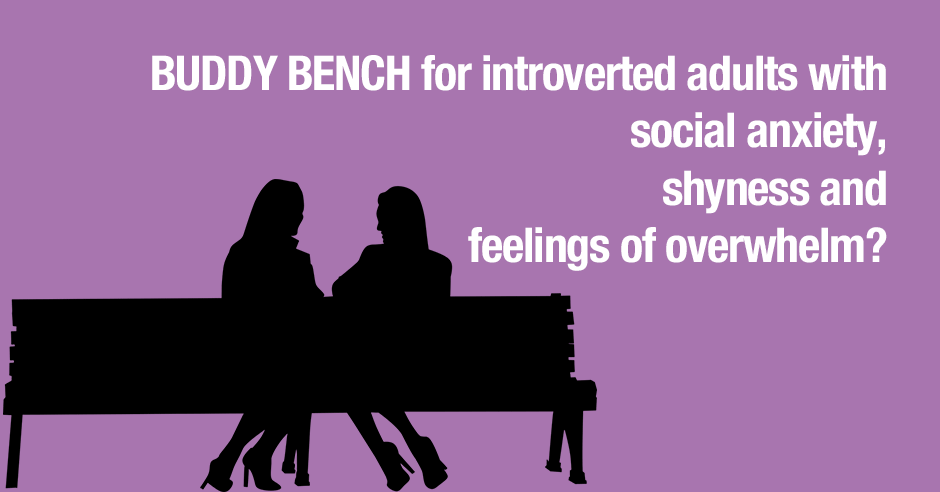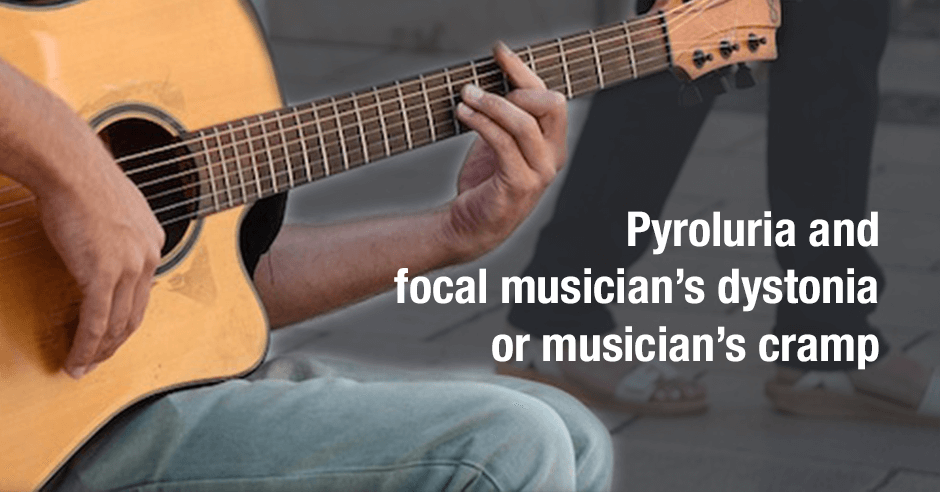
Buddy Benches or Friendship Benches are being used in many countries around the world in schools to help children who feel lonely or are shy or anxious. I propose we do something similar for introverted adults with social anxiety, shyness and feelings of overwhelm or intimidation when they attend conferences.
This BBC article, How ‘Buddy Benches’ are making playtime less lonely shares this about how they are helping children fit in more:
The school playground can be a lonely place for a child if they haven’t got anyone to play with. But a special type of bench is helping pupils make friends.
The idea is simple – if a child feels lonely, they can go to the bench as a signal that they need someone to play with. Another child will see them, go and talk to them and include them in their games.
Also from the BBC article, we learn that Buddy Bench Ireland is taking it a step further and trying to do something different with them, using the bench to engender empathy and as
a reminder for children of things like communication, mutual support and opening up about feelings
Other objectives of these Buddy Benches in schools is:
- reducing social isolation
- improving mental wellbeing
- end bullying
I propose we take these Buddy Benches – that work so well with children – to another level and set them up at conferences for adults too. I believe they could work very well for introverts (who make up around 50% of the population) with social anxiety and/or anyone feeling overwhelmed and/or intimidated and/or shy.
I get kickback when I talk about introverts feeling socially anxious but it’s common as you can see by these comments from introverted individuals
- It isn’t always a comfortable place to be when I must be in a crowd.
- The hardest aspect of living life as in introvert is we all live in an extroverted world. School pushes kids to do group projects, that are just awkward and when you don’t do well in it you’re doing something wrong or something is wrong with you. The moment I step out of the door I am no longer me, I am a character that has to put on a show in order to succeed in the work place.
- Sometimes I can communicate with friends well and sometimes I fake it really badly. I always wonder if people can see past my half smile and fake laugh. It’s painful to be honest. But there are times when I don’t mind so much.
One big question is this: would adults use one or would they feel more self-conscious than children? Would they worry more about what others will think if they sit down at an empty bench waiting for someone to join them, essentially saying “I’m shy” or “I’m anxious” or “I’m an introvert” or “I feel intimidated”?
In the BBC article they address this stigma and worry aspect:
But do children actually use the bench? And are they worried about how it makes them look?
“They don’t see it as stigmatised,” says Sinead McGilloway, director of the Centre for Mental Health and Community Research at Maynooth University, who led a study of 117 pupils at three schools which have benches.
Forty per cent of the children she questioned said they had used the bench, and 90% said if they saw someone else sitting on it they would talk to them.
I have these questions for you about using a Buddy Bench at a business or health conference:
1) How likely are you to use a Buddy Bench as an adult diagnosed with social anxiety and/or know you have the social anxiety condition called pyroluria and you’re working to address your symptoms with nutrients but are not quite there yet.
2) How likely are you to use a Buddy Bench as an adult who identifies with being an introvert and are easily overwhelmed at the networking and mingling aspects that comes when you attend a conference?
3) How likely are you to use a Buddy Bench as an adult who feels shy and/or easily overwhelmed and/or intimidated in new settings with large groups of people you don’t know?
4) How likely are you to be the “Big Buddy” (I just made this term up because it makes me think of Big Brother or Big Sister) and go up to someone sitting on a designated Buddy Bench in order to offer moral support, conversation, connection, encouragement and kindness?
Of course, I love the idea of these Buddy Benches and would have used one for support and connection in the past. I have pyroluria and used to have dreadful social anxiety (and considered myself an introvert). But now that I’m on the pyroluria protocol I feel like a social butterfly and I am very relaxed at big group events. I would definitely go and buddy-up with someone looking for support.
And let’s not forget that Buddy Benches are just one part of the solution – for both children and adults – and we don’t want to forget food, nutrients and functional medicine:
- While you’re figuring out the role of diet, gut health, adrenal/thyroid health, toxin exposure etc, a good place to start is to assess for and address low GABA and low serotonin with the amino acids GABA and tryptophan. This provides quick nutritional support for worry, fear, anxiety, tension, overwhelm, lack of confidence and feelings of intimidation.
- My next step would be to assess for and address pyroluria with zinc and B6 (and other key nutrients) to help ease and often eliminate the social anxiety completely. Believe it or not, there is a strong connection between pyroluria and introversion and many of my clients and folks in my community no longer feel introverted when they address their pyroluria. I write about this in another blog: Am I an anxious introvert because of low zinc and vitamin B6?
Feel free to comment and let us know what you think about Buddy Benches for adults. Do you have other ideas as to where these adult Buddy Benches could be used?
Let us know if you’ve seen these Buddy Benches work successfully with children and what ideas we could take away to get similar results for adults using them.
And do share if a nutritional approach or if addressing pyroluria has eased your social anxiety, and maybe got you wondering if you are an introvert after all.
Feel free to post your questions too.
